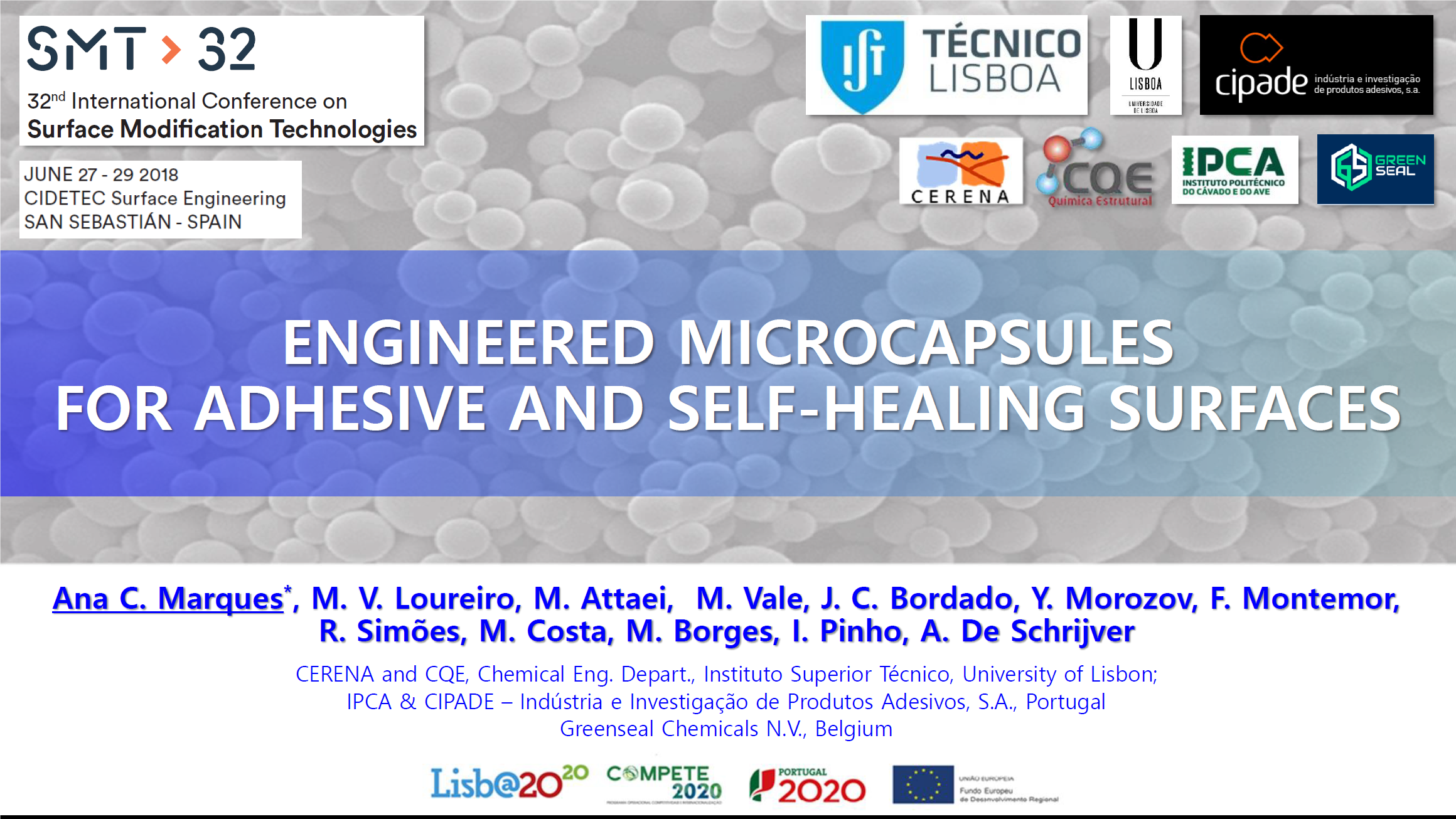
Keynote presentation on Engineered microcapsules for adhesive and self-healing surfaces given at SMT32 international conference
This work deals with advanced self-healing surfaces and self-reactive adhesive interfaces, where isocyanate, a very reactive, but toxic substance, used in high demanding adhesive applications, is encapsulated, avoiding safety related issues. Engineered polymer shell microcapsules that incorporate a variety of reactive isocyanate compounds in their core have been developed to take part of adhesive formulations and coatings. They are designed to respond to multiple external stimuli, such as a specified pressure, temperature, or crack generation and propagation. To obtain microcapsules with unprecedented functionalities, we use mini and microemulsions as templates, combined with shell formation methods, such as interfacial polymerization, coacervation, or solvent evaporation. The successful isocyanate encapsulation was confirmed by Fourier transformed infrared spectroscopy (FTIR) using an attenuated total reflectance accessory, thermogravimetric analysis (TGA) and differential scanning calorimetry (DSC), while the morphology and the microcapsules size distribution was assessed with optical and scanning electron microscopy (SEM). Peeling strength tests carried out on the new adhesive formulations, containing the developed microcapsules, enabled the study of the isocyanate release and of the type of failure of the adhesive joint. The encapsulation efficiency of the desired isocyanate compound, was found to be high, and the resulting microcapsules, once broken, were found to exhibit a high cross-linking effectiveness, leading to high performing self-healing surfaces and to self-reactive and eco-innovative adhesive interfaces.